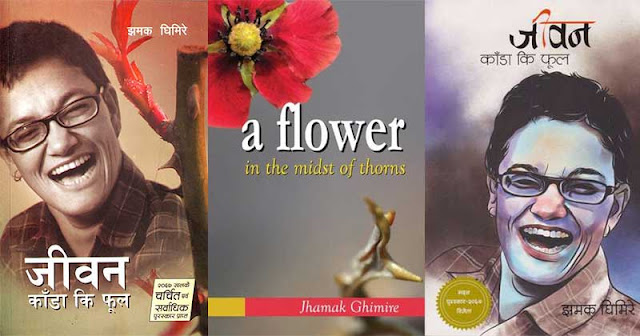STUDY ABROAD VIS-À-VIS HIGHER EDUCATION AT HOME
At present, there are fourteen universities and several colleges in the country, which provide professional degrees and diplomas in various subjects. However, the lure of studying abroad has not abated at all. Does this mean Nepali universities and colleges provide low-quality education?
More young Nepalese students prefer to receive foreign degrees than studying the same course at home. Photo: LB Thapa
By LB THAPA
These statistics suggest that Nepali students going abroad for higher education is on the increasing trend. Although due to the corona pandemic, many universities did stop admitting international students for some time, once the corona pandemic subsides more Nepali students will seek higher education abroad.
At present, there are fourteen universities and several colleges in the country, which provide professional degrees and diplomas in various subjects. However, the lure of studying abroad has not abated at all. Does this mean Nepali universities and colleges provide low-quality education?
It is high time for the policymakers and pedagogies of the country to take this issue with due seriousness. Hundreds of thousands of students are leaving the country to study abroad when the country has already invested billions of dollars in the higher education sector. It should be everybody’s concern to know about the factors, which compel Nepali students to leave the country the study abroad in such large numbers.
The problem has arisen as the majority of the skilled students never returned to the country. The basic question is why Nepali students do not return with their degrees and diplomas back home. The most potent reason could be that the Nepali higher education system has no direct link with employment in the country. This is the reason many Nepali students prefer studying abroad to studying in the country.
Truth has it that most of the degrees and diplomas Nepali colleges and universities provide today do not give job guarantees. As a result, parents do not want to spend their hard-earned money on higher education at home. There is also no guarantee that one can get a job on the basis of merit in the country. Because it is also a known fact, that many unqualified people have occupied important posts through nepotism or favoritism. Politicians always interfere in every sector and try to place their men in the key posts…this is a harsh reality.
When corruption and irregularities are rampant in the country, how one can think of getting a fair share of the pie through hard work and talent. Today many talented Nepali men and women are working abroad as professors, engineers, doctors, and research scholars. Had they been living in Nepal, their talent would have been undervalued. This would definitely cause them frustration and eventually, they might reach the brink of leaving the country.
The students, who go for higher education from India, China, Korea, and Japan, eventually return to their respective countries. It is because their governments assure better job opportunities for them at home. Nevertheless, this is not the case with the Nepali government. Due to the volatile nature of Nepali politics, political parties are more worried about elongating the life of the government in power rather than other issues of national interest. In a situation like this, all the blame goes to corrupt and myopic policymakers of the government.
Over the years, the Nepal government has invested lots of money in the improvement of higher education, but it has not been as effective as it should be. The World Bank had provided $65 million in loans to upgrade higher education. With this fund, the government did initiate Nepal Higher Education Reform Project (NHERP). The purpose of this project was to improve the quality and efficiency of higher education in the country.
However, the biggest weakness of Nepali higher education is that Nepali degrees and diplomas are not compatible with job markets in the country. The education policymakers must develop a curriculum that should fill the need of the manpower required in different sectors. Private universities and institutions should have the freedom to develop courses to meet the job requirement of the country.
Without a doubt, higher education is the backbone of the country as it supplies a skilled workforce for the country. Its importance therefore cannot be undermined in any respect. But corruption has polluted the whole system. It is because of corruption, unqualified people have occupied prominent positions in the country. Either corrupt or unqualified persons pilot the leading projects and programs. Such people do not contribute anything good to the development of the country.
Nepali politics itself is to be blamed which is the main source of all kinds of corruption in the country. The ministers and high-ranking government officials interfere in every sector of employment. Whether it is the appointment of schoolteachers in primary schools or high-ranking jobs, politicians will definitely try to fix their people in vacant positions.
For an overall change, all political parties must take a vow to stand against all forms of corruption. Politics should be meant for policymaking and development of the country, but not taking personal benefits by misusing their posts and power.
 |
| LB Thapa is a Pokhara-based freelance writer and author. |
LEGAL
WARNING
All rights reserved. No articles and photos published in this blog can be reproduced without the prior written permission of the author. Legal action will be taken immediately if any articles or photos are reproduced without the author’s knowledge. However, articles or photos can only be reproduced by duly mentioning the author’s name and the blog's name (read2bhappy.blogspot.com). The author must be informed by sending an email. All articles and the photos published in this blog are the copyright property of LB THAPA.










.png)
I agree with Kapil Poudel. This is really a very useful article for all students who want have more knowledge about study abroad.
ReplyDeleteRamesh Chapagain
Pokhara